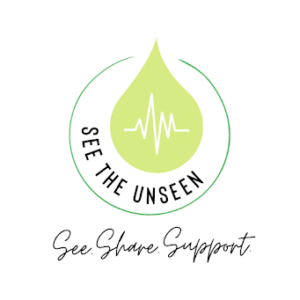Making jokes about serious issues is nothing new. Political satire has been a foundation of television since the days of Johnny Carson. But the 2016 election has been a goldmine for comedians, even more so than usual. While comics and satirists are free to make their jokes, a projected 25 percent of American adults have learned about this election mainly from late-night comedy shows.
Maybe we need to take these jokes a little more seriously.
This campaign season has allowed many television comedians to flex their satirical muscles more than ever before. John Oliver’s “Last Week Tonight” came into its own this year, winning its first Emmy. Samantha Bee’s new show “Full Frontal” is making a killing, largely due to her biting jokes about our presidential candidates.
Late-night talk shows experienced a changing of the guard this election cycle, with Trevor Noah taking over “The Daily Show,” Seth Meyers replacing Fallon on NBC’s “Late Night,” and Stephen Colbert moving from Comedy Central to “The Late Show.” All of these comedians make political commentary a nightly staple.
Oliver’s three videos about Donald Trump have amassed a total of nearly 50 million views on YouTube and are lauded for their extensive coverage of the candidate, but they are filled with odd and often crude humor. Colbert was invited to the Democratic National Convention, but he arrived as a “Hunger Games” parody. Noah and his predecessor Jon Stewart both stressed that “The Daily Show” is not a legitimate news source. These comedians continually try to remind the public of their job titles, but viewers keep coming back for real-world information.
The nature of comedy itself is part of what draws people to these satirists.
While a joke is often exaggerated or twisted, truth is always at the heart of a good punchline. Randomness does not equate humor, so a joke must contain something relatable and true. When people tune in to listen to a comedian, they inherently place their trust in what is being said.
“If a joke is built on sand, it doesn’t work,” Oliver said. “It’s very, very important to us that we are solid.” As much as comedians want to make others laugh, they also genuinely want to speak truth.
On the flipside of this innate trust in comedians is a strong distrust in mainstream media. Only 32 percent of Americans say they have “a great deal” or “a fair amount” of trust and confidence in the media “to report the news fully, accurately and fairly,” which is the lowest number in U.S. history, according to a recent Gallup poll.
This collapse in media trust is not evenly spread across all demographics. The drop has been most dramatic among young and middle-aged respondents. Cynicism toward journalism among young citizens is not new. Twenty years ago in “The Atlantic,” James Fallows criticized newspaper reporters and TV media for treating politics like a partisan tug-of-war, in which policy issues played the part of the rope.
Edgy comedians are primed to step in and fill the void. By combining facts with quips, they can draw in young consumers who may feel abandoned by corrupt media. The fact that late-night comedians depend upon media outlets for on-the-street research is not lost upon Oliver, Meyers or Colbert, who cite the basis of every joke they tell. Still, viewers seem to believe the news through the filter of wisecracks and insults.
Therein lies another reason for a rise in comedic reporting. In a time of 24-hour news cycles and countless forms of media, any viewpoint can be confirmed, depending on where you look. So when it’s easier to find sources to solidify people’s biases, it’s also easier to find ones to fan their outrage. Do you lean left? Turn on MSNBC. Conservative? Read “The Blaze” or watch Fox News.
Good comedians will put their personal views aside and skewer both sides of the aisle. Nothing is off limits when it comes to a late-night roasting from Colbert or Bee. In one episode, Noah can make fun of Hillary Clinton’s missing e-mails and million-dollar speeches as well as Trump’s tax returns and bankruptcies. A veil of humor enables a comedian to poke holes in all arguments from all angles.
The 2016 election has been a time when voters get comedy from the news and the news from comedians. While this is not necessarily a bad thing, it is telling us that we should demand more respectability from the mainstream media.














Be First to Comment